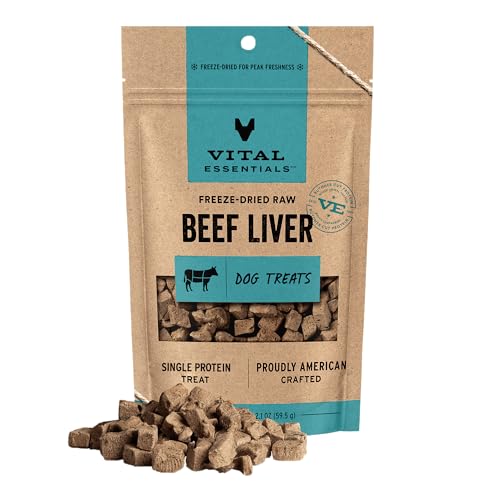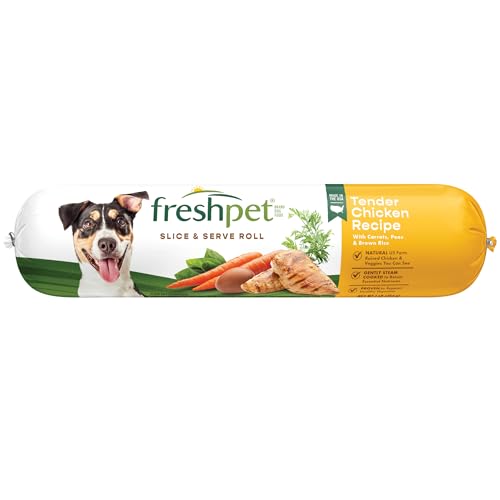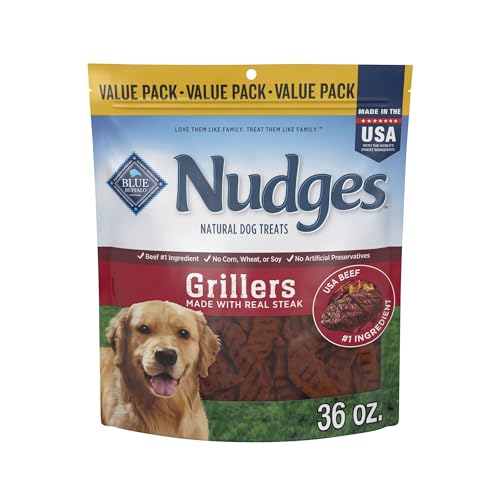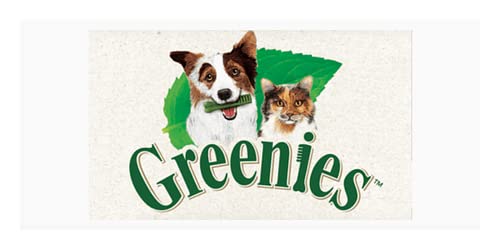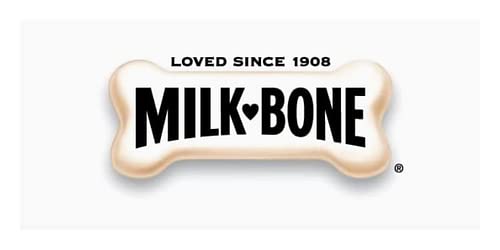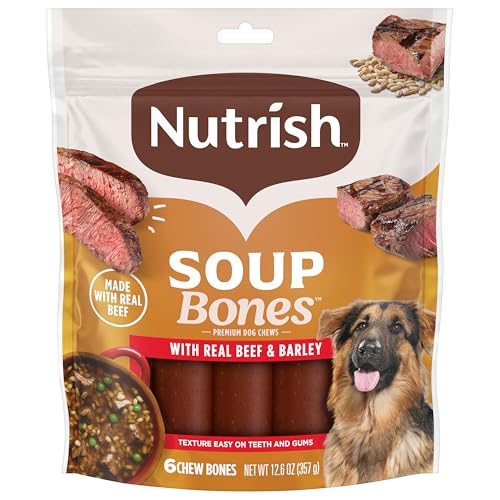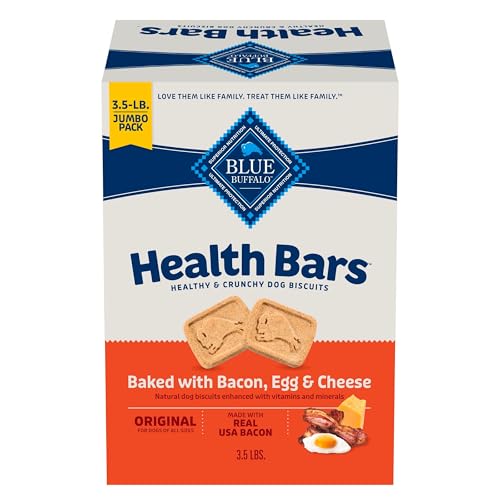
Dog Treats
Indulge Your Pup with Irresistible Dog Treats!
Spoil your dog with the best treats for dogs that are not only delicious but also offer nutritional benefits, dental health benefits, and bonding opportunities. Your furry friend deserves the best, so why not treat them to some tasty delights? Your pup will thank you with wagging tails, wet kisses, and endless love!
Treats for Dogs can be a great way to reward your furry friend or provide a little extra motivation during training. Look for treats that are made with high-quality ingredients and avoid those that contain fillers or artificial preservatives. Some healthy options include fresh fruits and vegetables, lean proteins, and low-fat dairy products. Remember to always give treats in moderation and adjust your dog’s overall diet accordingly.
Some healthy treat options for dogs include small pieces of cooked chicken or turkey, carrot or apple slices, and commercial treats that are made with high-quality ingredients such as sweet potato or salmon. You can also try making homemade treats using simple ingredients like peanut butter, pumpkin, and oats.
Best dog treats
Dog treats brands
Dog Treats
Greenies Dental
Greenies Dental Chews are made with natural ingredients and are available in various sizes to accommodate different dog breeds and sizes. They are a convenient and tasty way to help maintain your dog’s dental hygiene and keep their breath fresh.
Greenies fresh natural dental dog treats 27oz pack
- The unique texture of Greenies Dog Chews cleans down to the gumline to fight plaque and tartar and freshen breath
- Greenies Treats for Dogs are veterinarian recommended and accepted by the Veterinary Oral Health Council (VOHC) for at-home oral care
- Treat your dog deliciously with the great taste of Greenies Original Dental Treats
- Greenies Dog Treats are proudly crafted in USA facilities with quality ingredients from around the world
- Greenies Dog Treats are Made with natural ingredients plus vitamins, minerals, & nutrients
Milk Bone crunchy dog treats
Milk-Bone Crunchy Dog Treats come in a variety of flavors, including beef, chicken, and bacon, to appeal to different dogs’ taste preferences.
Indulge your furry friend with the ultimate joy of delicious treats for dogs!
- Contains one (1) 40 ounce package of small dog treats with real bone marrow
- The dog biscuit shell encases a real bone marrow center
- Crunchy on the outside and meaty on the inside, our MaroSnacks dog snacks are a satisfying combo of texture and mouthwatering flavor
- Savory treats with calcium, perfect for dogs of all sizes
- Baked with love in Buffalo, New York, USA, with colors from natural ingredients only
Dogs and donuts
While dogs may be intrigued by the sweet aroma and colorful appearance of donuts, it’s important to remember that donuts are not suitable for dogs and should not be fed to them. Donuts are typically high in sugar, unhealthy fats, and other ingredients that can be harmful to dogs’ health.
Feeding donuts to dogs can lead to a range of potential health issues, including obesity, dental problems, digestive upset, and even pancreatitis. The high sugar content in donuts can also cause a rapid spike in blood sugar levels in dogs, which can be dangerous, especially for dogs with diabetes or other health conditions.
3 ingredient peanut butter dog treats no banana
Homemade dog treats no bake
Homemade no-bake treats for dogs are a simple and healthy way to show your furry friend some extra love. These treats can be made with just a few ingredients and don’t require any baking, making them quick and easy to whip up. Here’s a simple recipe for homemade no-bake dog treats:
Ingredients:
- 1 ripe banana
- 1/2 cup peanut butter (make sure it does not contain xylitol, which can be toxic to dogs)
- 1/4 cup coconut oil, melted
- 1 1/2 cups rolled oats
- Optional: shredded carrots, chopped apples, or other dog-safe ingredients for added flavor and nutrition
Instructions:
- In a bowl, mash the ripe banana with a fork until smooth.
- Add the peanut butter, melted coconut oil, and rolled oats to the bowl, and mix well.
- If desired, you can also add shredded carrots, chopped apples, or other dog-safe ingredients for added flavor and nutrition.
- Using a spoon or your hands, shape the mixture into small balls or press it into a silicone mold or lined baking dish.
- Place the treats in the refrigerator for at least 1 hour to firm up.
- Once firm, store the treats in an airtight container in the refrigerator for up to 1 week.
These homemade no-bake treats for dogs are a healthy and delicious alternative to store-bought treats, and you can have fun experimenting with different ingredients to cater to your dog’s preferences and dietary needs. As with any homemade treat or food, it’s always important to consult with your veterinarian to ensure that the ingredients are safe and appropriate for your dog’s specific health condition and dietary requirements.
Dog Treats Frequently Asked Questions
Is it OK to give your dog treats everyday?
It’s important to remember that treats for dogs should be given in moderation and should not make up a significant portion of your dog’s diet. Talk to your veterinarian about how many treats are appropriate for your dog based on their age, weight, and overall health.
What are the best dog treats?
When it comes to dog treats, there are a wide variety of options available on the market. The best treats for dogs largely depend on your dog’s preferences, dietary needs, and any potential allergies or sensitivities. Here are some popular types of dog treats that are commonly considered among the best:
1- Soft Treats: Soft treats are typically moist and chewy, making them easy to break apart and ideal for training or rewarding your dog. They come in various flavors and sizes, making them suitable for dogs of all sizes and ages.
2- Dental Chews: Dental chews are designed to promote good oral health in dogs by helping to clean their teeth and freshen their breath. They are usually made with dental-friendly ingredients and have a firm texture that encourages chewing, which can help reduce plaque and tartar buildup.
3- Freeze-Dried Treats: Freeze-dried treats are made by removing moisture from the ingredients while retaining their nutritional value. They are typically high in protein and can be a great option for dogs with food sensitivities or allergies.
4- Natural Treats: Natural treats are made with minimal processing and are often made from single or limited ingredients, making them a good option for dogs with dietary restrictions or sensitivities. They can include options like freeze-dried meats, dehydrated fruits and vegetables, and more.
5- Homemade Treats: Homemade treats for dogs are made from scratch using wholesome ingredients that you choose, giving you control over the quality and nutrition of the treats. Homemade treats for dogs can be a great option for dogs with specific dietary needs or for pet owners who prefer to make their treats at home.
Remember to always consider your dog’s individual needs and preferences when choosing treats, and consult with your veterinarian if you have any concerns or questions about your dog’s diet. It’s important to feed treats in moderation and ensure they are part of a balanced and healthy diet for your furry friend.
What are the healthiest dog treats?
The healthiest dog treats are those that are made with high-quality, natural ingredients, are nutritionally balanced, and are appropriate for your dog’s specific dietary needs. Here are some factors to consider when looking for healthy dog treats:
– Ingredients: Look for treats that have wholesome, recognizable ingredients listed on the package. Avoid treats that contain artificial preservatives, colors, or flavors, as well as treats that are high in added sugars or unhealthy fats.
– Nutritional Value: Choose treats that are nutritionally balanced and provide added benefits to your dog’s overall health. For example, treats that are high in protein, fiber, and essential vitamins and minerals can be beneficial for your dog’s muscles, digestion, and immune system.
– Size and Texture: Opt for treats that are appropriately sized for your dog’s breed and age, and have a texture that encourages chewing. Chewing on treats can help clean your dog’s teeth, promote healthy gums, and reduce plaque and tartar buildup.
– Limited Ingredients: Treats with limited ingredients can be a good option for dogs with food sensitivities or allergies. Look for treats for dogs that are made with single or limited ingredients to minimize the risk of triggering any potential allergies or digestive issues.
– Made in Trusted Facilities: Choose treats that are manufactured in reputable facilities with strict quality control standards to ensure the safety and quality of the treats.
Always consult with your veterinarian before introducing any new treats into your dog’s diet, especially if your dog has any pre-existing health conditions or dietary restrictions. Remember that treats for dogs should be given in moderation and should not exceed 10% of your dog’s daily caloric intake to avoid overfeeding and potential weight gain. Prioritize your dog’s health and well-being by selecting treats that are made with wholesome ingredients and meet their individual nutritional needs.
What treats can dogs eat everyday?
There are some treats that may be suitable for dogs to eat on a daily basis, depending on their individual dietary needs, age, size, and overall health. These treats may include:
– Dental chews or dental sticks designed to help clean your dog’s teeth and promote oral health.
– Small pieces of fresh fruits or vegetables that are safe for dogs, such as carrots, apples, or blueberries, which can provide vitamins, minerals, and fiber.
– High-quality, low-calorie dog treats that are specifically formulated for daily consumption, with minimal added sugars, unhealthy fats, or artificial ingredients.
– Treats for dogs made with limited, natural ingredients that are suitable for dogs with food sensitivities or allergies.
It’s important to remember that treats should not exceed 10% of your dog’s daily caloric intake to avoid overfeeding and potential weight gain. Every dog is different, so it’s crucial to consider your dog’s individual needs, preferences, and health status when selecting treats for everyday consumption. Always consult with your veterinarian for personalized recommendations on treats that are safe and suitable for your dog to enjoy daily.
What flavor of treats do dogs like the best?
Dogs have individual preferences when it comes to flavors, and what one dog may enjoy, another dog may not. However, some popular flavors of dog treats that are commonly enjoyed by many dogs include:
1- Meat flavors: Dogs are typically carnivorous animals, so treats with meat flavors such as beef, chicken, lamb, or pork can be appealing to them.
2- Cheese flavors: Many dogs enjoy the taste of cheese, and treats with cheese flavors can be a hit with them.
3- Peanut butter flavors: Peanut butter is a favorite among many dogs, and treats with peanut butter flavor can be quite tempting for them.
4- Bacon flavors: The aroma and taste of bacon are often appealing to dogs, and bacon-flavored treats can be a delicious treat option for them.
5- Sweet flavors: While dogs generally prefer savory flavors, some dogs may also enjoy treats with sweet flavors, such as honey, banana, or apple.
It’s worth noting that each dog has unique taste preferences, and what one dog may enjoy, another may not. When selecting treats for dogs, it’s crucial to consider your dog’s individual preferences, dietary restrictions, and health concerns. Introducing new flavors gradually and in moderation is recommended to ensure they are well-tolerated by your dog’s digestive system. It’s always a good idea to consult with your veterinarian for personalized recommendations based on your dog’s specific needs.
Are Cheerios good for dogs?
Cheerios are generally considered safe for dogs to eat in moderation. Cheerios are low in sugar and are made from whole grains, which makes them a healthier option compared to many other human cereals. However, it’s important to keep in mind that Cheerios are not nutritionally complete for dogs and should not be considered a staple or replacement for a balanced dog food diet. Remember, treats for dogs should only make up a small portion of your dog’s overall diet, and it’s essential to provide your dog with a complete and balanced dog food that meets their specific nutritional needs.
What is not recommended for dog treats?
When it comes to treats for dogs, it’s important to avoid certain types of foods or ingredients that can be harmful to dogs. Some treats for dogs that are not recommended for dogs include:
– Human junk food: Many human junk foods such as chocolate, candies, cookies, and chips are high in sugar, salt, and unhealthy fats, which can be harmful to dogs. Chocolate, in particular, is toxic to dogs and can cause serious health issues.
– Foods high in fat: Treats for dogs that are high in fat, such as fatty meats, bacon, or fried foods, can lead to weight gain, digestive issues, and even pancreatitis in dogs. It’s best to choose low-fat options for treats for dogs.
– Foods with bones: Cooked bones, especially small bones or bones that splinter easily, can pose a choking hazard or cause blockages in the digestive tract of dogs. Avoid giving your dog bones from cooked meat or poultry as treats.
– Foods with added sugar or artificial sweeteners: Treats for dogs- with added sugar or artificial sweeteners, such as xylitol, can cause digestive upset, dental issues, or even toxicity in dogs. Always choose treats that are free from added sugars or artificial sweeteners.
– Foods that are toxic to dogs: Some human foods, such as grapes, raisins, onions, garlic, avocados, and certain nuts, can be toxic to dogs and cause serious health problems. Avoid giving these foods as treats to your dog.
– Hard or brittle treats: Hard or brittle treats can pose a choking hazard for dogs, especially for small dogs or dogs with dental issues. Choose soft, chewy treats that are easy to digest and gentle on your dog’s teeth.
It’s always best to choose dog treats that are specifically formulated for dogs and meet their nutritional needs. When in doubt, consult with your veterinarian for recommendations on safe and healthy treats for your dog.
Can dogs eat cheese?
Yes, dogs can eat cheese in moderation. Cheese can be a tasty treat for dogs and may be a good source of protein and calcium. However, it’s important to keep in mind that some dogs may be lactose intolerant and may experience digestive upset after consuming cheese or other dairy products.
If you want to offer cheese to your dog, it’s best to start with a small amount and monitor your dog’s reaction. Watch for any signs of upset stomach, such as diarrhea, vomiting, or gas. If your dog shows any signs of discomfort after eating cheese, it’s best to avoid feeding it to them in the future.
Can dogs eat bananas?
Yes, dogs can eat bananas in moderation. Bananas are a good source of fiber, vitamins, and minerals, such as vitamin C, vitamin B6, and potassium, which can be beneficial for dogs. However, like any other human food, bananas should be given to dogs in appropriate amounts and as part of a balanced diet.
When feeding bananas to dogs, it’s important to remove the peel first, as the peel can be difficult for dogs to digest and may cause gastrointestinal upset. The banana fruit itself can be fed to dogs in small, bite-sized pieces or mashed for easier digestion. It’s best to offer bananas as an occasional treat and not as a staple food in your dog’s diet.
Can dogs eat peanut butter?
Absolutely! Peanut butter can make for a scrumptious and satisfying treat for dogs. Many pet owners use peanut butter as a tasty ingredient in homemade treats for dogs, or simply spread it on a treat puzzle or bone for an engaging and delicious snack. However, it’s important to always check the ingredients in the peanut butter you’re using to ensure it does not contain any harmful additives, such as xylitol, which can be toxic to dogs. When given in moderation and as part of a healthy diet, peanut butter can be a safe and enjoyable treat for dogs to savor. So go ahead and let your pup indulge in the delight of peanut butter treats for dogs!

